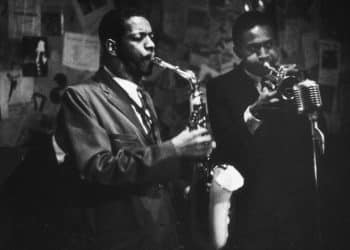Randy Newman is an American singer-songwriter and composer known for his distinctive style that blends pop, rock, and classical music genres. He has created a diverse catalog of songs over the years, ranging from witty and satirical to sentimental and poignant. Newman’s music is characterized by his sharp, incisive lyrics that often deal with social and political issues, as well as his unique vocal delivery that adds to the emotional depth of his compositions.
In this list of the 10 Best Randy Newman Songs of All Time, we explore some of his most iconic and influential works that have left an indelible mark on the world of music. From his early hits like “Lonely at the Top” and “Rednecks” to his more recent works such as “It’s Money That Matters” and “I Love L.A.,” these songs showcase Newman’s exceptional talent as a songwriter and his ability to capture the complexities of the human experience through his music.
1. Sail Away
“Sail Away” is a satirical song by Randy Newman that was released in 1972. The song is performed in the persona of a slave trader, who is trying to convince Africans to board his ship and sail to America with him. The catchy melody and upbeat tempo contrast sharply with the dark subject matter, creating a jarring and uncomfortable listening experience. The lyrics are biting and sarcastic, with the narrator promising the Africans that life will be better in America, where they can work hard and enjoy the benefits of the American Dream.
2. You’ve Got a Friend in Me
“You’ve Got a Friend in Me” is a charming and uplifting song from Randy Newman that was prominently featured in the hit animated movie “Toy Story.” The song is a heartfelt expression of friendship and loyalty, with lyrics that are playful and optimistic. Newman’s unique voice and piano playing are accompanied by a playful arrangement of guitar, bass, and percussion that perfectly captures the joyful and whimsical spirit of the song. “You’ve Got a Friend in Me” has become an enduring favorite among both children and adults, and is often played at weddings, graduations, and other celebratory events.
3. Louisiana 1927
“Lousiana 1927” is a poignant and reflective song by Randy Newman that captures the devastation caused by the great Mississippi River flood of 1927. The song features Newman’s distinctive voice and piano playing, accompanied by a simple yet powerful arrangement of strings and brass instruments. The lyrics paint a vivid picture of the destruction caused by the flood, while also touching on themes of human resilience and the enduring spirit of the people of Louisiana.
4. Political Science
“Political Science” is a satirical song by Randy Newman that takes aim at American foreign policy and cultural imperialism. The song’s lyrics propose a solution to America’s global problems: “Let’s drop the big one and see what happens.” The song features Newman’s signature piano playing, with a catchy melody and ironic lyrics that criticize America’s tendency to solve problems with military force. The song was released on Newman’s 1972 album, “Sail Away,” and has since been covered by a variety of artists.
5. I Love L.A.
“I Love L.A.” is a classic song by American singer-songwriter Randy Newman, released in 1983. The song is a tribute to Los Angeles, celebrating the city’s sunny weather, diverse culture, and entertainment industry. It features a catchy melody, upbeat tempo, and a memorable chorus that repeats the refrain “I love L.A.” The lyrics playfully reference local landmarks, sports teams, and celebrities, such as the Hollywood sign, the Lakers, and the Beach Boys.
6. Rednecks
“Rednecks” is a satirical and controversial song by Randy Newman that was released in 1974. It addresses the issue of racism in the United States and highlights the ignorance and bigotry that still exists in certain parts of the country. The song is written from the perspective of a stereotypical southern redneck, who proudly proclaims his racism while attacking the supposed hypocrisy and superiority of the northern states. The lyrics are biting and provocative, and the song is notable for its use of irony and sarcasm to critique the very attitudes it is describing.
7. Short People
“Short People” is a satirical song by Randy Newman, released in 1977. The song is known for its controversial lyrics and satirical message, which pokes fun at the prejudice and discrimination against people who are shorter in height. The song’s catchy melody and Newman’s distinctive vocal style make it a memorable tune, while the humorous lyrics have led to both criticism and praise. Despite the initial backlash against the song, it went on to become a hit and has remained a popular and recognizable tune in Newman’s catalog.
8. It’s Money That Matters
“It’s Money That Matters” is a satirical song by Randy Newman, released in 1988 on his album “Land of Dreams.” The song is a criticism of materialism and the greed that has overtaken American culture, with Newman’s trademark wit and irony. The lyrics describe how money has become the only measure of success and the way it can be used to buy everything, including love and happiness. The catchy melody and upbeat tempo of the song are contrasted with the cynical lyrics, highlighting the absurdity of the situation.
9. God’s Song (That’s Why I Love Mankind)
“God’s Song (That’s Why I Love Mankind)” is a satirical song by Randy Newman that was released in 1972 on his album “Sail Away.” The song takes a critical look at humanity’s propensity for violence, hatred, and prejudice in the name of religion. Newman’s lyrics are ironic and scathing, juxtaposing religious themes with a harsh depiction of the human condition. The melody is slow and haunting, almost hymn-like, but the lyrics are provocative and controversial. The song has been praised for its powerful lyrics and message, as well as Newman’s vocal performance, which conveys the song’s irony and cynicism.
10. Lonely at the Top
“Lonely at the Top” is a satirical song by Randy Newman that critiques the excesses of fame and wealth. The lyrics describe the loneliness and emptiness that can accompany success, and the desperation to maintain one’s status at any cost. The song’s melody is simple and repetitive, with a haunting piano riff that adds to the overall melancholic tone. Newman’s vocals are subdued, almost resigned, as he delivers the biting lyrics with a sense of detachment.








